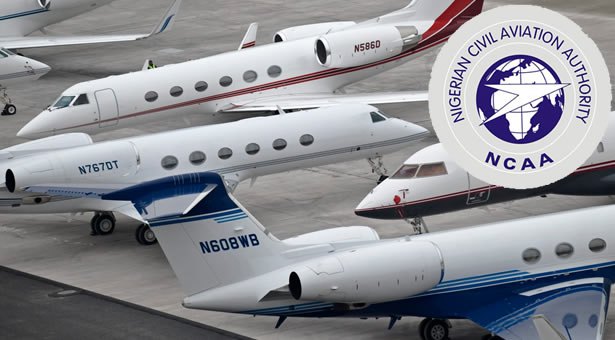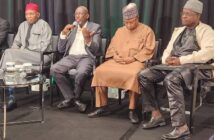Some aviation stakeholders have urged the Federal Government to ensure an effective review of the sector and its sustainability before reopening airports on June 21.
They appealed to the government to ensure that the resumption of flights would be in compliance with approved protocols for safe operations by the airlines.
NAN reports that the Federal Government has approved June 21 for resumption of domestic flights, after shutting down airports for three months, to curtail the spread of COVID-19 pandemic.
The President of ASRTI, Dr Gbenga Olowo, said that the sector required more initiatives than just reopening the airports.
“Three weeks is good enough to do the needful by all stakeholders, because we never stopped strategising and talking all through the lockdown. It’s time to walk the talk.
“It is expected that all states should open up their economies and indeed all countries should open simultaneously their activities because aviation connects economies.
“So, while we continue to battle with the virus, our economic life line must not be destroyed. The two are directly related. Just as disease can kill, hunger can also kill and even kill faster.
“Hunger destroys the immune system and makes citizens susceptible to Covid and non Covid attack,” he said.
Olowo said that airlines had been advancing in technology prior to COVID-19 on social distancing through self service for online ticketing and payments, self service check in, self service security and passport controls,among others.
Olowo said: “Face masks, handwashing and sanitisation will be a necessary and sufficient condition for travel.
“Health certificates valid for at least 14 days, scannable on phones just like boarding pass, should be a necessary condition for travel to avoid isolation at the destination.
“This is a challenge for port health.
“As we continue to advance in technology, the ease of doing business without or limited human contact will progress the industry further and challenge the skill set of employees,” he said.
Olowo said that on board, social distancing would be quite challenging except aircraft would be configured to all first class seating arrangements for economic operations.
According to him,no airline can ever break even with less than 40 per cent load factor at the extremely low fares prevalent in the market, where pasengers pay less than 100 dollars per hour on jet engines.
“This was the level 30 years ago, precisely 1990. Lagos to Abuja was N2, 200. Exchange rate was N22 per dollar.
“The dichotomy is, can the passengers afford higher levels of tariff ?
“This is where government’s intervention in airline economics is needed in Nigeria by deliberate application of subsidies on fuel, taxes, airport charges,VAT, five per cent or lower interest rate on loans, and quick foreign exchange (FX) availability in order to lower airlines’ cost of operations,” he said.
Also, the Secretary General, ASRTI, Group Capt. John Ojikutu (rtd), said that government’s non-fiscal monetary bailouts for aviation operators should only be given to airlines not indebted to the government’s service providers.
Ojikutu said that the industry was going through a hard time under the pandemic, adding that the stakeholders needed to make sacrificial efforts instead of insisting on financial bailouts from government.
He said: “We may come out worst of the present situation than we are now.
“Government on the other hand should give the operators palliatives but it must not be monetary because previous financial interventions running to hundreds of billions of Maura giving to the domestic airlines are yet to be recovered fully after almost 10 years.
“Government should make airport landing and parking free, free air navigational charges for not more than three months for domestic airlines only after easing of lockdown on operations.
” Fifty per cent Passengers Service Charge (PSC) discount for three months on all domestic passengers only should be considered.
“Gradual charges reversal and the incremental of all the service charges to 50 per cent of the normal charges in the next three months on all services provided by the government’s service providers should be considered .
“The Passenger Service Charge will also revert to 100 per cent after the first three months of concession”.
Also, Mr Olumide Ohunayo, a member of the association, said that the resumption of airlines was normal which should be subjected to the directives and the guidelines of the airports’ authority for effective safety procedures.
Ohunayo said that social distancing and nose masks’ wearing should be enforced before boarding and while on board.
He added that serving of food should be stopped on board, while sanitisers should be given to passengers.
“The cabin crew should also put in place measures to ensure effective safety procedures within the three weeks’ window before reopening.
“Training and retraining of operational staff should be in compliance with government’s regulations,” he said.




